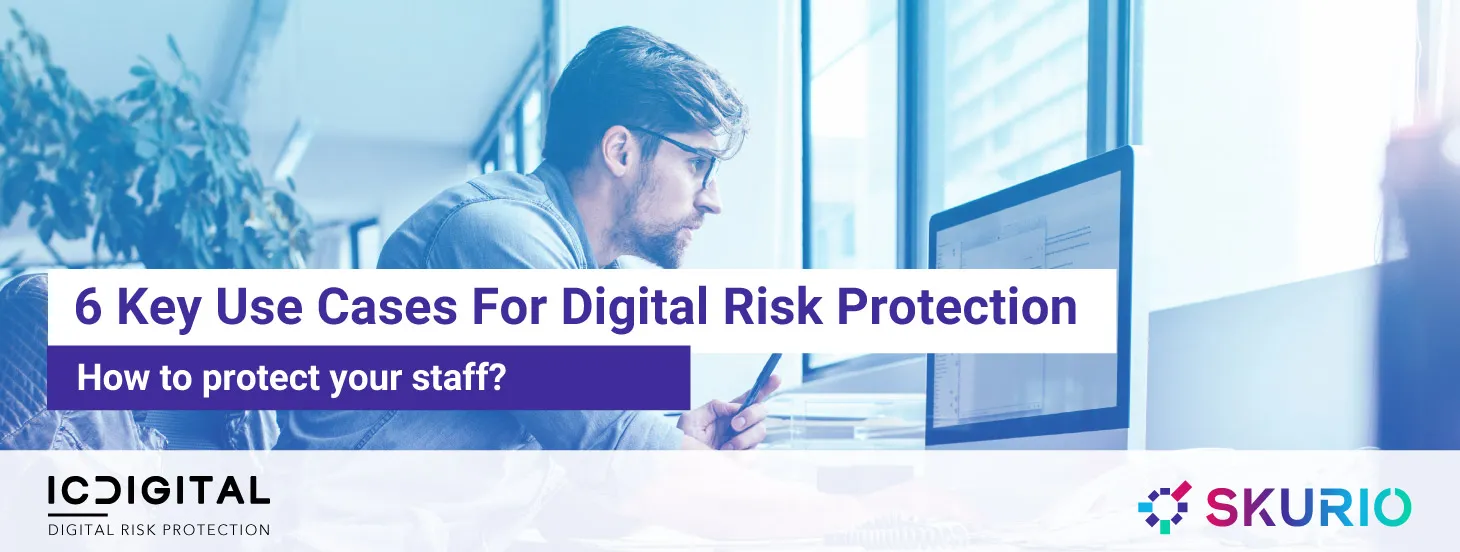
6 Key Use Cases For Digital Risk Protection - How to protect your employees?

Digital Risk has grown by folds and is at present higher than it has ever been, owing to the increased number & types of cyber attacks. And data being the basis of every business out there, it requires way more protection now. It is expected that the numbers are slated to soar by at least three times in 25 years from now.
Do you want your business to race ahead amidst all kinds of data distribution across your supply chain? Let me tell you how. There are 6 important use cases to protect your data with a Digital Risk Protection Solution - Staff, Network, Brand, Goods & Services, Margin, and Customer Data.
Here are the digital risks that might affect your staff -
- Identity Theft: This is the act of using your employees’ identity without their permission. This could include opening a utility account without permission, or even taking out a loan with your name and will be termed a criminal or fraudulent activity.
- Data Leaks: When third-party applications have security flaws, hackers can take advantage of these security flaws and find data leaks. These data leaks can be posted in the Dark Web or sold on the Dark Web and used by hackers for several reasons, putting your employees at risk.
- Phishing Attacks: These messages usually claim to come from IT departments, HR Heads, or CEOs of corporations, and may feature an urgent request to transfer funds to a specified bank account, or to click on a link that the user is told will resolve the issue. If your employees are not aware of the consequences, they might put you at risk by interacting with suspicious communications.
- Account Takeovers: Account takeovers are a great fear for businesses. Hackers often try to impersonate employees or representatives of your organisation by gaining control over their accounts. If that employee has access to privileged information, it could have dire consequences. Your accounts could be compromised or even the third-party suppliers targeted if an employee is not careful.
- Fraudulent Emails: Even for an instance, quite a number of fraudulent emails communicating, “Claim Your Benefits”, “Here’s Your Prize Money”, “You Have Won A Car” etc. & such messages just increasingly keep coming in. Mobile numbers are being used to bypass multi-factor authentication for all the important applications and text messages being sent pretending to be that person in a social engineering attack.
- Doxing Attacks: The hackers haven’t restricted themselves here. They have in fact launched personal attacks on the high-profile individuals involved in the businesses thereby giving businesses a run for their money. One such common way can be Doxing attacks, short for dropping ‘dox’ or documents, that involve hackers making documents related to your executives and business and making them publicly available although they shouldn’t be.
- Whale Phishing: There’s one more social engineering tactic employed by the hackers that leads to deviating transactions & sensitive information, better known as Whale Phishing making businesses much more vulnerable.
The Staff being the biggest asset you have, makes them a major source of data leakage and it can be in the form of emails, spreadsheets containing unencrypted sensitive data, intentional acquisition of customer information & unintentional walking away with some kind of data which surprisingly is true in case of 70% of the employees while leaving a business.
Some important Password I would like you and your staff to take care of:
- Don’t reuse passwords, be it any account.
- Don’t make your favourite names your favourite passwords. Passwords are meant to be least known.
- Use of Password Manager applications to help create unique passwords & store them securely.
- Although remote work has taken the driver’s seat in the last year & a half, other security aspects like locking the laptop screen when not in use shouldn’t be overlooked.
So, now tell me, do you want to know where your data can be dumped or if it will be sold by the hackers on the Dark Web? How long will it take to track? The answers to all your questions right here: 50 ways to lose your data to find out more about the sources of data leakages and what you can do about it.
I would like to thank Lisa Kelly, Channel Marketing Manager at Skurio for all her valuable inputs.
